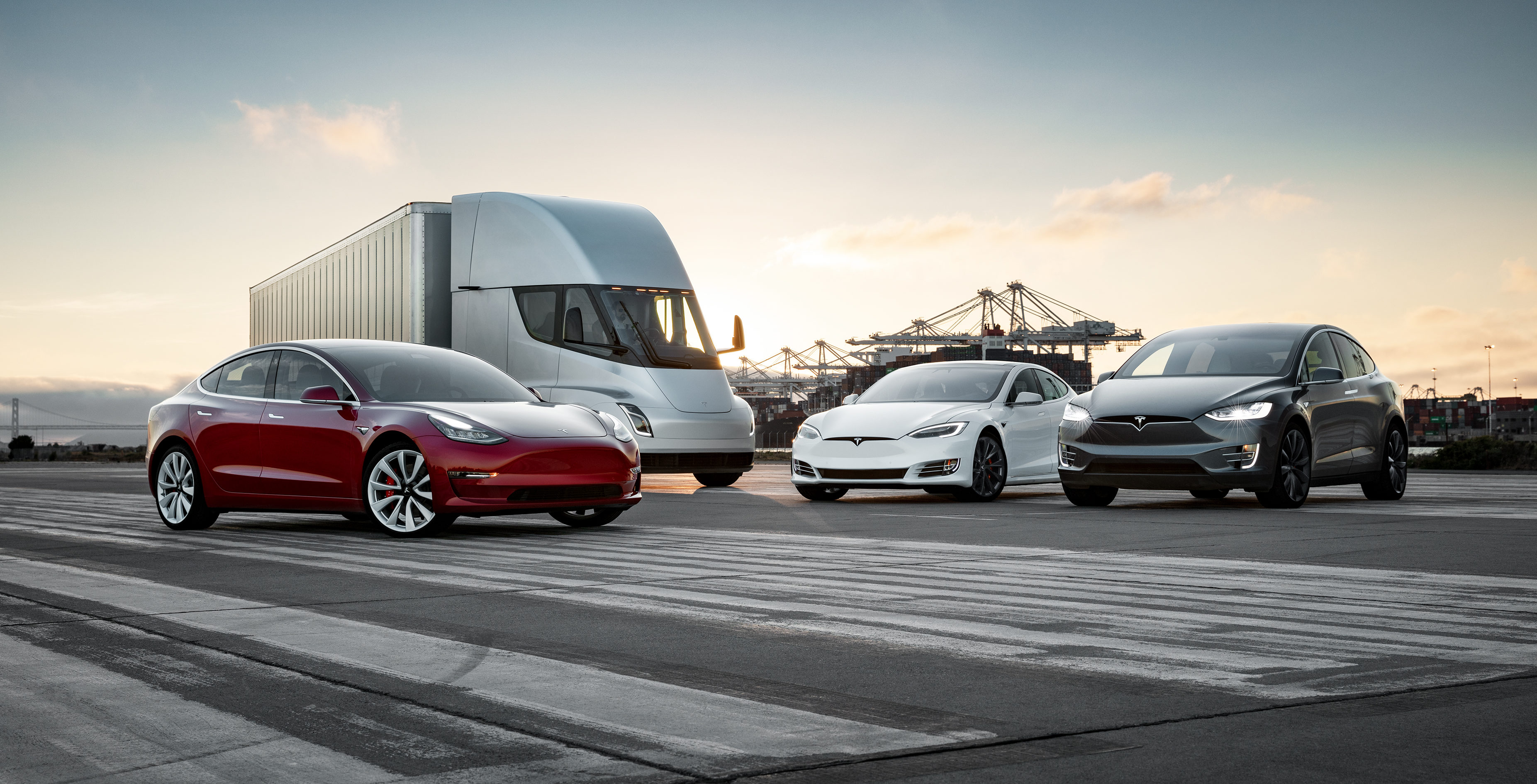Welcome to a FREE preview of our weekly exclusive! Each week our team goes ‘Beyond the News’ and handcrafts a special edition that includes our thoughts on the biggest stories, why it matters, and how it could impact the future.
You can receive this newsletter along with all of our other members-exclusive newsletters, become a premium member for just $3/month. Your support goes a long way for us behind the scenes! Thank you.
—
Overall, I’d say it has been a good week for electric vehicles.
The Porsche Taycan had more than just a moment in the spotlight, really. It kicked up all sorts of discussion about where EVs are headed and brought in some healthy debate about where things should be headed. I believe there’s an old saying that goes, “There’s no such thing as bad publicity,” which is probably debatable; however, as far as EV awareness goes, even the most skeptical takes on Porsche vs. Tesla vs. the rest arguably does more to spread consumer curiosity than the most expensive and extensive marketing campaigns.
I know the Taycan has been discussed to death at this point, but I do find it interesting what its final debut meant in the big picture. Despite everything that the $TSLAQ crowd tries to drag Tesla through the mud about, here is a luxury sports car maker with a decades-long, hard-earned reputation spending serious time and effort developing an amazing electric car. It’s not a compliance car to meet some sort of regulatory requirement. It’s not just an “option” built to prove the company is eco friendly or whatever term makes people feel warm and fuzzy about their purchase. It was built to be an EV worthy of sharing the stage with its award-winning, legendary, gas-powered brethren.
I think Elon Musk’s subsequent attentions to the Taycan added to the publicity benefits EVs were experiencing as well. Silliness aside, Tesla’s new challenge to take on the Taycan’s Nürburgring record validated what Porsche had achieved and validated Tesla’s success in spreading its message that EVs really are the future of automotive transportation. Tesla fans are no longer just cheering on the brand’s drag race wins over legacy cars. There’s a new “normal” on its way where electric is competing with electric, and the finer details about the cars will matter rather than just the source of power.
The timing of these recent events seems to be well placed in light of, say, Europe’s upcoming regulations regarding CO2 reductions for vehicles. Reading the news about various car makers’ struggles to comply with the rules and the foot dragging that’s been going on, it seems to me like there’s at least some confidence that serious efforts to make good electric cars is underway.
Personally, it took a while to understand the hubbub about EVs because of the poor efforts of car makers in the past. They sounded impractical, held very little value once purchased, and could only be driven until the batteries went bad, essentially. I mean, if it weren’t for writing about Tesla as a reporter, I would have thought any EV built to meet government regulations was going to be crud and held off as long as possible before buying one. Sometimes I wonder if European customers worry about the same thing after so many legacy car makers have come out with lackluster EVs, assuming their budget doesn’t allow for a Tesla.
The Taycan seems to give some hope that “compliance” may be out the window soon. Now that there’s another serious EV out there, everyone else risks looking…lazy? Uninterested in customer satisfaction? Innovatively challenged? With both Tesla and Porsche blowing through stereotypes, other car makers have to shelve their excuses and figure things out.
Then there’s Rivian continuing to make progress towards entering the arena as well. Most recently, the startup announced a $350 million dollar investment from Cox Automotive meant to focus on customer experience. It’s the third big investment for the company that’s working on some serious electric pickup trucks and SUVs. I know we still have yet to see their cars enter production, but the prototypes and show models are pretty impressive already. They’re yet another company putting legacy auto on notice that the compliance days are over.
Ford seems to have gotten the message with its $500 million dollar Rivian investment, so there are sprinkles of hope here and there I suppose. Perhaps Audi’s tiny-range e-tron that was recently announced will produce enough customer results to encourage production of really good EVs with a win-win balance. All customers get great cars, and car makers can find a better price point by reducing the parts that cost the most, i.e., the batteries. Just brainstorming here…
But regardless, considering the Tesla and Porsche banter and Rivian’s news this week, I’d say EVs came out with winning headlines overall. “Power” to the future? Sorry… I’m a sucker for cheesy 80s mantras.
Elon Musk
X account with 184 followers inadvertently saves US space program amid Musk-Trump row
Needless to say, the X user has far more than 184 followers today after his level-headed feat.
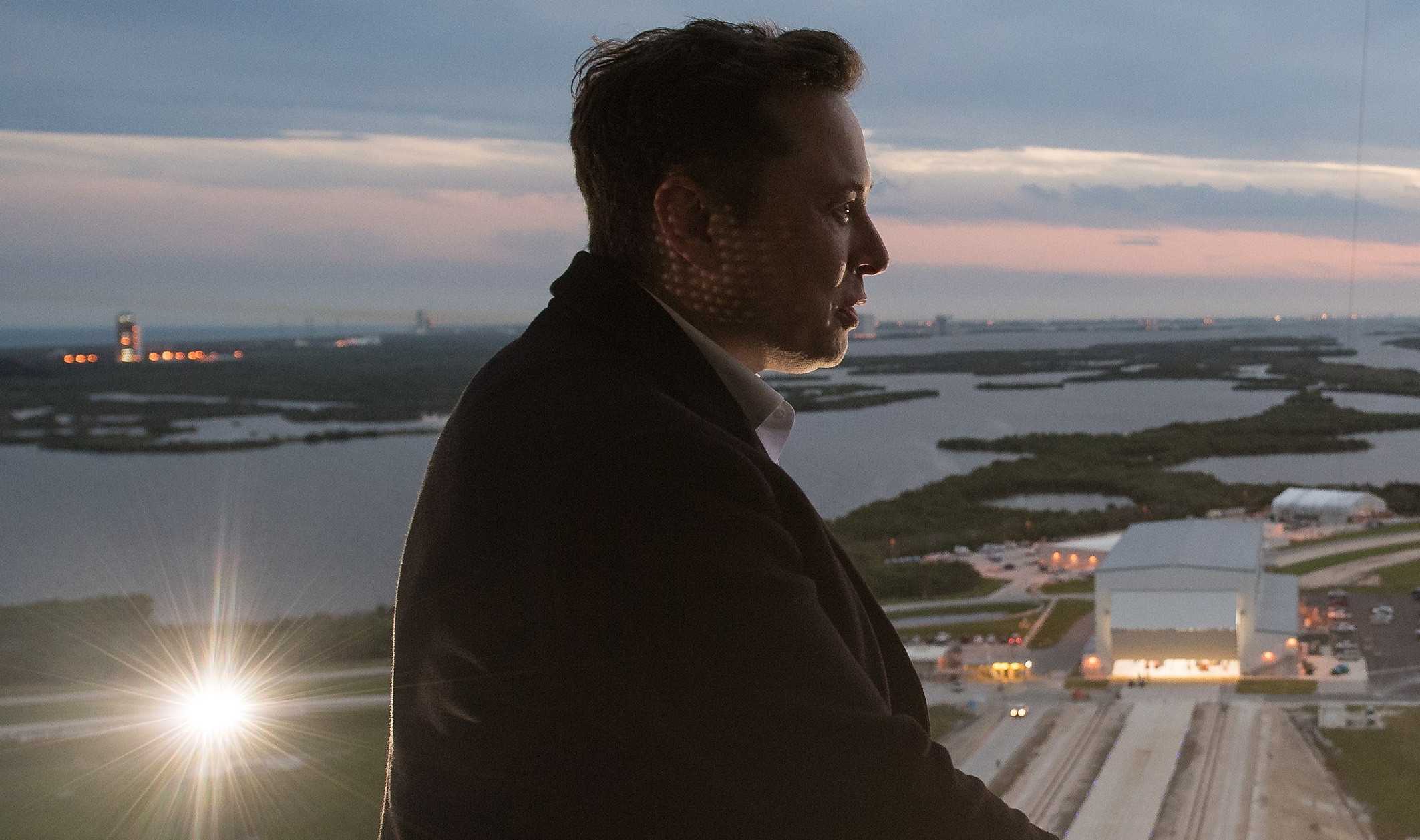
An X user with 184 followers has become the unlikely hero of the United States’ space program by effectively de-escalating a row between SpaceX CEO Elon Musk and President Donald Trump on social media.
Needless to say, the X user has far more than 184 followers today after his level-headed feat.
A Near Fall
During Elon Musk and Donald Trump’s fallout last week, the U.S. President stated in a post on Truth Social that a good way for the United States government to save money would be to terminate subsidies and contracts from the CEO’s companies. Musk responded to Trump’s post by stating that SpaceX will start decommissioning its Dragon spacecraft immediately.
Musk’s comment was received with shock among the space community, partly because the U.S. space program is currently reliant on SpaceX to send supplies and astronauts to the International Space Station (ISS). Without Dragon, the United States will likely have to utilize Russia’s Soyuz for the same services—at a significantly higher price.
X User to the Rescue
It was evident among X users that Musk’s comments about Dragon being decommissioned were posted while emotions were high. It was then no surprise that an X account with 184 followers, @Fab25june, commented on Musk’s post, urging the CEO to rethink his decision. “This is a shame this back and forth. You are both better than this. Cool off and take a step back for a couple days,” the X user wrote in a reply.
Much to the social media platform’s surprise, Musk responded to the user. Even more surprising, the CEO stated that SpaceX would not be decommissioning Dragon after all. “Good advice. Ok, we won’t decommission Dragon,” Musk wrote in a post on X.
Not Planned, But Welcomed
The X user’s comment and Musk’s response were received extremely well by social media users, many of whom noted that @Fab25june’s X comment effectively saved the U.S. space program. In a follow-up comment, the X user, who has over 9,100 followers as of writing, stated that he did not really plan on being a mediator between Musk and Trump.
“Elon Musk replied to me. Somehow, I became the accidental peace broker between two billionaires. I didn’t plan this. I was just being me. Two great minds can do wonders. Sometimes, all it takes is a breather. Grateful for every like, DM, and new follow. Life’s weird. The internet’s weirder. Let’s ride. (Manifesting peace… and maybe a Model Y.)” the X user wrote.
Lifestyle
Tesla Cybertruck takes a bump from epic failing Dodge Charger
The Cybertruck seemed unharmed by the charging Charger.
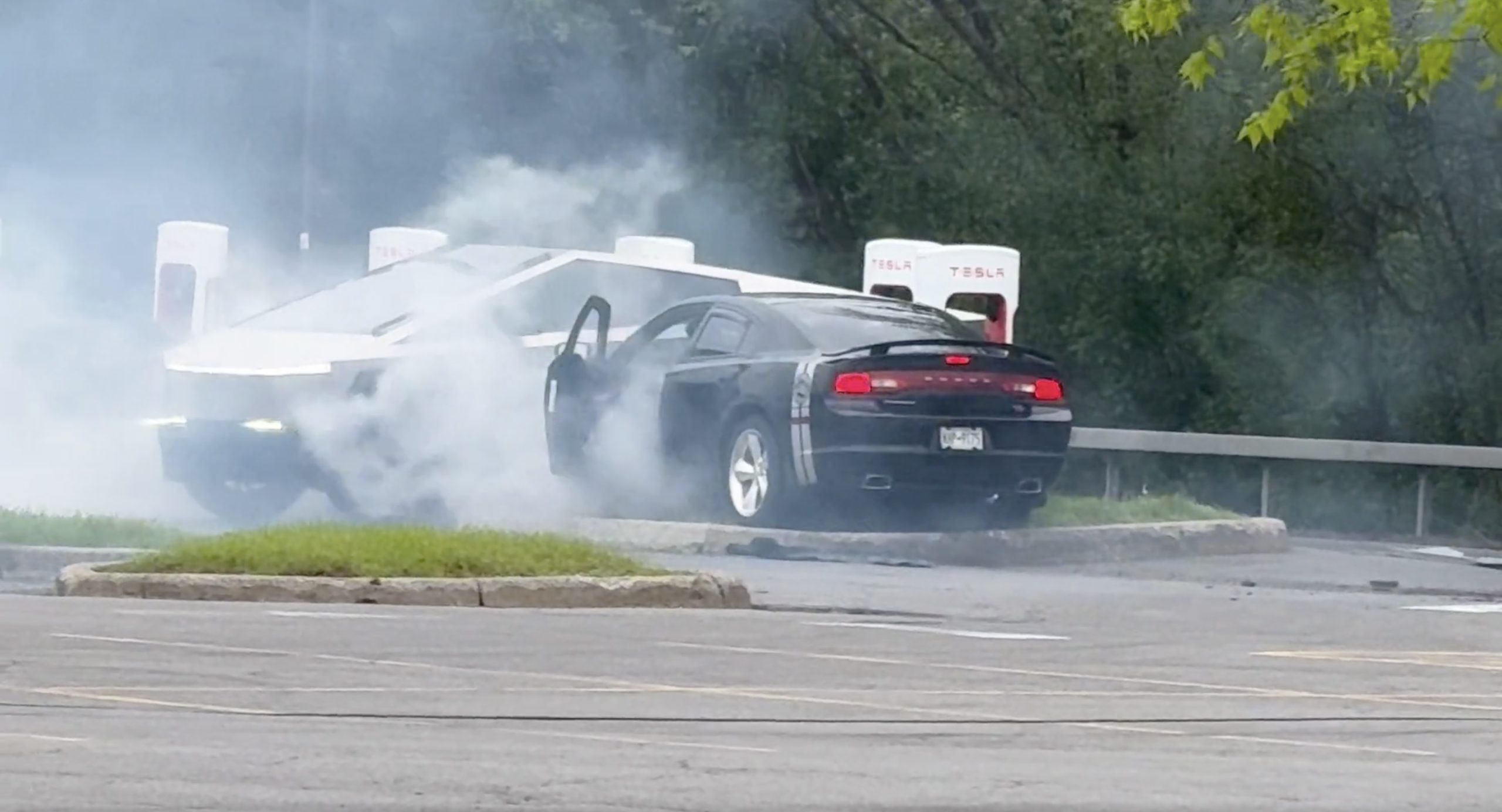
There comes a time in a driver’s life when one is faced with one’s limitations. For the driver of a Dodge Charger, this time came when he lost control and crashed into a Tesla Cybertruck–an absolute epic fail.
A video of the rather unfortunate incident was shared on the r/TeslaLounge subreddit.
Charging Charger Fails
As could be seen in the video, which was posted on the subreddit by Model Y owner u/Hammer_of_something, a group of teens in a Dodge Charger decided to do some burnouts at a Tesla Supercharger. Unfortunately, the driver of the Charger failed in his burnout or donut attempt, resulting in the mopar sedan going over a curb and bumping a charging Cybertruck.
Ironically, the Dodge Charger seemed to have been parked at a Supercharger stall before its driver decided to perform the failed stunt. This suggests that the vehicle was likely ICE-ing a charging stall before it had its epic fail moment. Amusingly enough, the subreddit member noted that the Cybertruck did not seem like it took any damage at all despite its bump. The Charger, however, seemed like it ran into some trouble after crashing into the truck.
Alleged Aftermath
As per the the r/TeslaLounge subreddit member, the Cybertruck owner came rushing out to his vehicle after the Dodge Charger crashed into it. The Model Y owner then sent over the full video of the incident, which clearly showed the Charger attempting a burnout, failing, and bumping into the Cybertruck. The Cybertruck owner likely appreciated the video, in part because it showed the driver of the Dodge Charger absolutely freaking out after the incident.
The Cybertruck is not an impregnable vehicle, but it can take bumps pretty well thanks to its thick stainless steel body. Based on this video, it appears that the Cybertruck can even take bumps from a charging Charger, all while chilling and charging at a Supercharger. As for the teens in the Dodge, they likely had to provide a long explanation to authorities after the incident, since the cops were called to the location.
Lifestyle
Anti-Elon Musk group crushes Tesla Model 3 with Sherman tank–with unexpected results
Ironically enough, the group’s video ended up highlighting something very positive for Tesla.
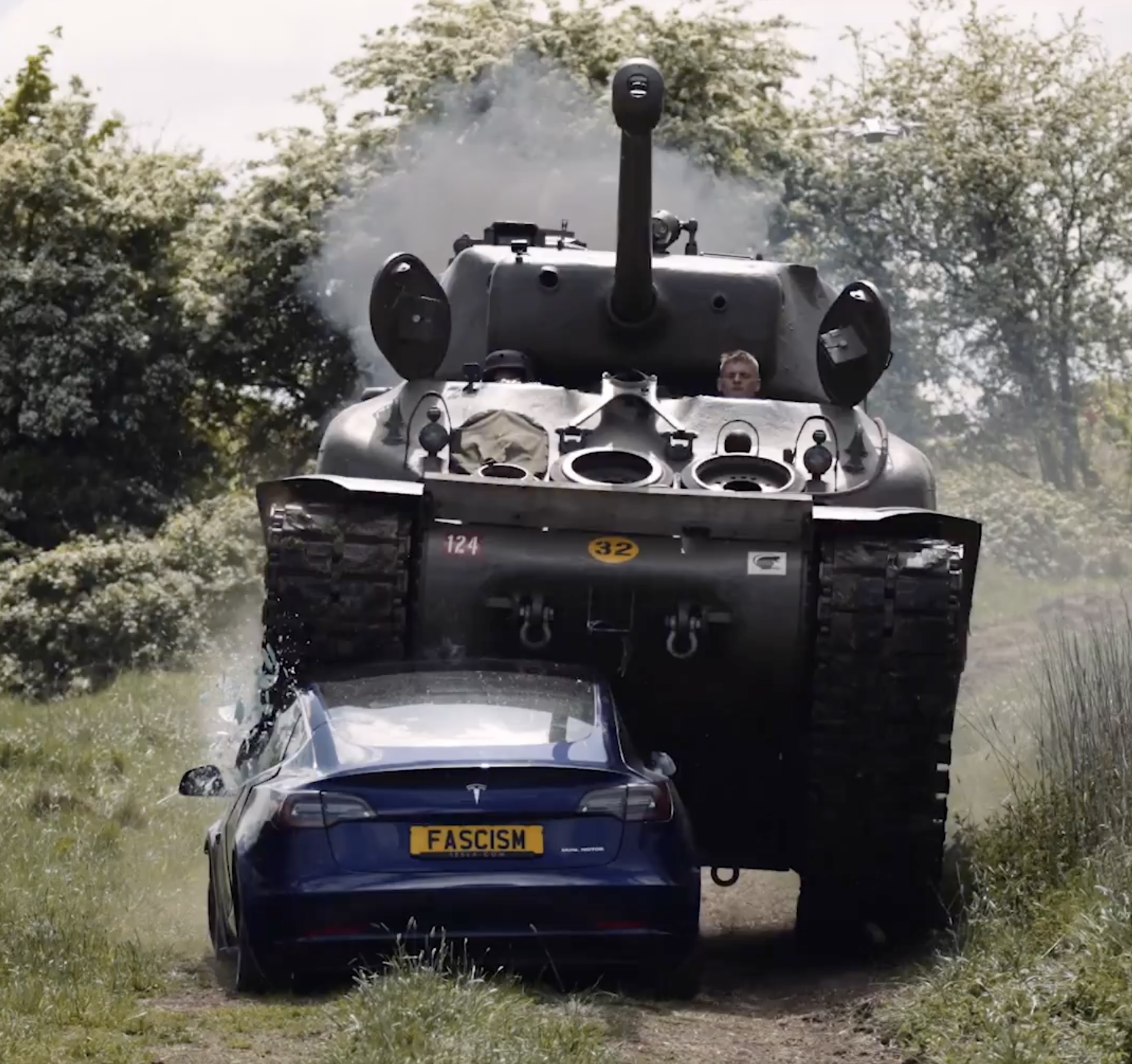
Anti-Elon Musk protesters and critics tend to show their disdain for the CEO in various ways, but a recent video from political action group Led By Donkeys definitely takes the cake when it comes to creativity.
Ironially enough, the group’s video also ended up highlighting something very positive for Tesla.
Tank vs. Tesla
In its video, Led By Donkeys featured Ken Turner, a 98-year-old veteran who served in the British army during World War II. The veteran stated that Elon Musk, the richest man in the world, is “using his immense power to support the far-right in Europe, and his money comes from Tesla cars.”
He also noted that he had a message for the Tesla CEO: “We’ve crushed fascism before and we’ll crush it again.” To emphasize his point, the veteran proceeded to drive a Sherman tank over a blue Tesla Model 3 sedan, which, of course, had a plate that read “Fascism.”
The heavy tank crushed the Model 3’s glass roof and windows, much to the delight of Led By Donkeys’ commenters on its official YouTube channel. But at the end of it all, the aftermath of the anti-Elon Musk demonstration ended up showcasing something positive for the electric vehicle maker.
Tesla Model 3 Tanks the Tank?
As could be seen from the wreckage of the Tesla Model 3 after its Sherman encounter, only the glass roof and windows of the all-electric sedan were crushed. Looking at the wreckage of the Model 3, it seemed like its doors could still be opened, and everything on its lower section looked intact.
Considering that a standard M4 Sherman weighs about 66,800 to 84,000 pounds, the Model 3 actually weathered the tank’s assault really well. Granted, the vehicle’s suspension height before the political action group’s demonstration suggests that the Model 3’s high voltage battery had been removed beforehand. But even if it hadn’t been taken off, it seemed like the vehicle’s battery would have survived the heavy ordeal without much incident.
This was highlighted in comments from users on social media platform X, many of whom noted that a person in the Model 3 could very well have survived the ordeal with the Sherman. And that, ultimately, just speaks to the safety of Tesla’s vehicles. There is a reason why Teslas consistently rank among the safest cars on the road, after all.
-

 Elon Musk5 days ago
Elon Musk5 days agoTesla investors will be shocked by Jim Cramer’s latest assessment
-

 News1 week ago
News1 week agoTesla Robotaxi’s biggest challenge seems to be this one thing
-

 Elon Musk2 weeks ago
Elon Musk2 weeks agoFirst Look at Tesla’s Robotaxi App: features, design, and more
-

 News2 weeks ago
News2 weeks agoWatch Tesla’s first driverless public Robotaxi rides in Texas
-

 News2 weeks ago
News2 weeks agoWatch the first true Tesla Robotaxi intervention by safety monitor
-

 Elon Musk2 weeks ago
Elon Musk2 weeks agoTesla to launch in India in July with vehicles already arriving: report
-
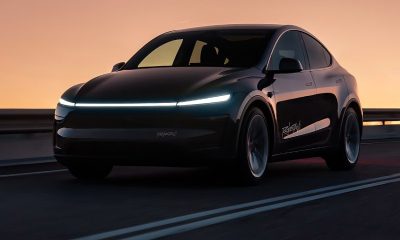
 Elon Musk2 weeks ago
Elon Musk2 weeks agoTesla officially launches Robotaxi service with no driver
-

 Elon Musk1 week ago
Elon Musk1 week agoA Tesla just delivered itself to a customer autonomously, Elon Musk confirms

